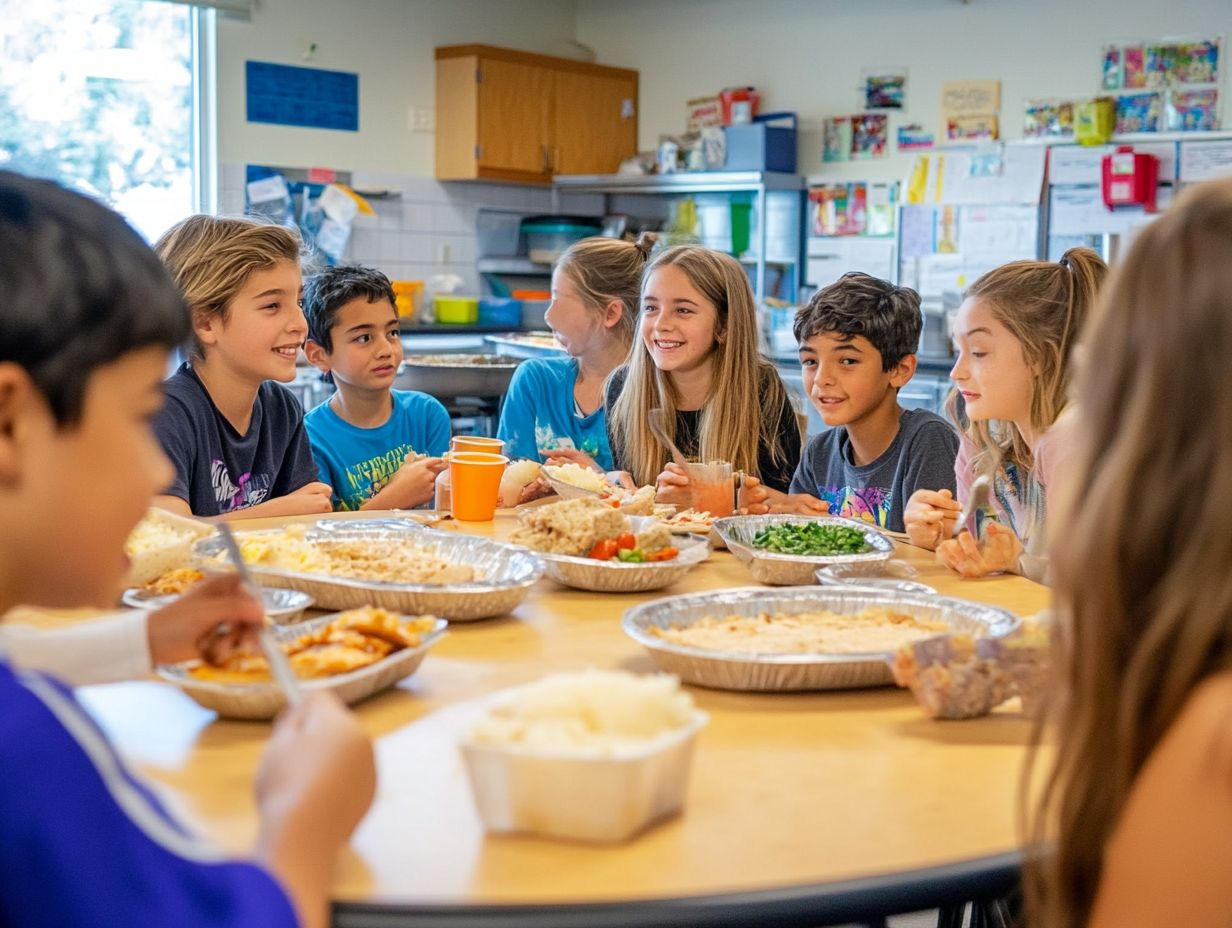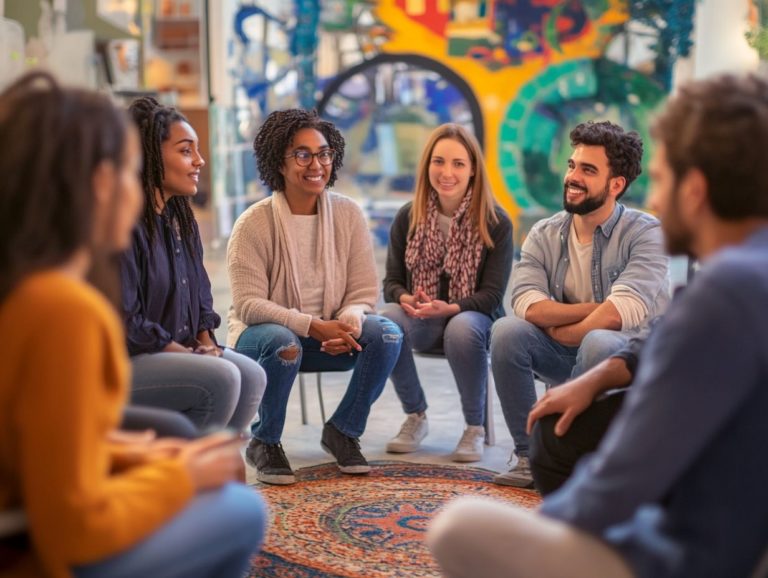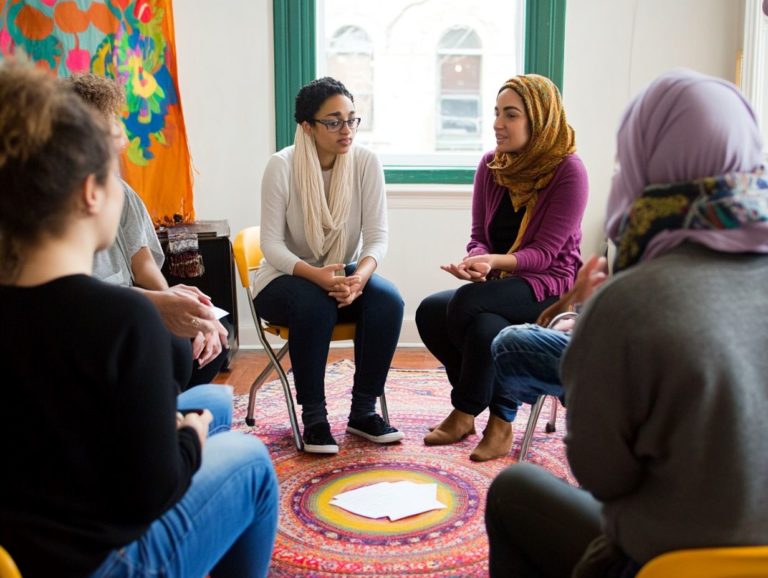The Benefits of Cultural Adaptation for Students
Cultural adaptation is a vital journey for you when navigating new environments, whether you’re studying abroad or engaging with diverse communities right at home. It entails understanding and embracing various cultures, which can significantly enhance your communication skills, social interactions, and global awareness.
However, adapting to a new culture isn’t without its challenges, such as experiencing culture shock and homesickness. Understand these key strategies now to thrive in your new environment!
Get ready to discover the amazing benefits of cultural adaptation! This article covers the benefits, hurdles you may encounter, and practical strategies to make your transition smoother. You’ll also find valuable resources to support you on this transformative journey.
Contents
- Key Takeaways:
- Understanding Cultural Adaptation
- The Benefits of Cultural Adaptation for Students
- Challenges of Cultural Adaptation
- Ways to Facilitate Cultural Adaptation
- Resources for Cultural Adaptation
- Frequently Asked Questions
- What is cultural adaptation and why is it important for students?
- How does cultural adaptation benefit students academically?
- What amazing personal benefits can cultural adaptation bring?
- Can cultural adaptation help students in their future careers?
- How can schools and universities support cultural adaptation for students?
- Are there any challenges to cultural adaptation for students?
Key Takeaways:

- Cultural adaptation helps students develop better communication and social skills, making it easier for them to form connections with people from different backgrounds.
- It fosters a deeper understanding and appreciation for diverse cultures, broadening perspectives and enhancing global awareness.
- While culture shock and homesickness can be challenges, there are strategies and support systems available to help students cope and maximize their experience.
Understanding Cultural Adaptation
Understanding Cultural Adaptation is essential in today’s diverse landscape, particularly within U.S. public schools. Multicultural awareness is key to fostering healthy classroom environments.
This process requires students and educators to adjust to different cultural norms, beliefs, and practices. This helps create inclusive and supportive learning experiences.
You must use teaching methods that respect different cultures. These methods ensure effective communication and promote social inclusion.
The significance of cultural competence in education cannot be overstated. It plays a crucial role in shaping interpersonal relationships and enhancing classroom success.
The Benefits of Cultural Adaptation for Students
Cultural adaptation offers a wealth of benefits, significantly enhancing your social skills and global awareness, which are important for students in today’s interconnected world.
By embracing cultural diversity, you cultivate the ability to communicate effectively with peers from various backgrounds. This fosters empathy and understanding in diverse learning environments.
These skills contribute to your academic success and equip you to thrive in multicultural workplaces and communities. Ultimately, this journey enriches your social experiences while promoting positive reinforcement and inclusion.
Improved Communication and Social Skills
Improved communication and social skills are among the most significant benefits of cultural adaptation. They enable you to cultivate effective interpersonal relationships in diverse environments.
When you interact with peers from various cultural backgrounds, you learn to navigate the differences in communication styles and social norms. This fosters empathy and respect.
Targeted teaching strategies can nurture this transformation. For instance, group projects that require cooperative problem-solving can unite you and your classmates, encouraging the sharing of perspectives shaped by unique experiences.
Role-playing activities can be invaluable. They allow you to explore different cultural scenarios, fostering greater awareness and adaptability. Engaging in multicultural presentations or storytelling sessions helps bridge gaps, creating a rich tapestry of shared knowledge.
These interactive experiences not only enhance your social skills but also empower you to appreciate the diversity within your classroom and community.
We invite you to share your experiences with cultural adaptation. How has it impacted your journey? Let’s learn together!
Increased Global Awareness and Understanding

Increased global awareness and understanding are essential for cultural adaptation. They allow you to appreciate cultural diversity and the rich tapestry of world traditions. This awareness expands your perspective, encouraging you to embrace cultural beliefs and historical contexts that may differ from your own.
Participating in educational programs such as international exchange initiatives gives you firsthand experience interacting with diverse cultures. These immersive experiences help you understand different cultures, enabling you to navigate differences with sensitivity and empathy.
Incorporating global studies into your curriculum enhances your ability to analyze social issues critically. This cultivates a sense of global citizenship. Schools that prioritize this type of education prepare you to thrive in an interconnected world, equipping you with the skills necessary to engage respectfully and adeptly across cultures.
Challenges of Cultural Adaptation
Despite the many benefits, you may encounter challenges such as culture shock and homesickness, especially in environments where you may feel like a minority.
These obstacles can hinder your adaptation and ability to flourish in new educational settings. It’s essential to seek support from teachers and the wider educational community to navigate this journey effectively.
Culture Shock and Homesickness
Culture shock and homesickness are experiences you re likely to face while adapting to a new environment. They often arise from significant shifts in your surroundings and social dynamics. These feelings can disrupt your educational journey and affect your overall well-being.
Initially, you may feel excitement and curiosity, but this can quickly turn to confusion and frustration as you navigate unfamiliar customs and languages. This phase of adjustment can lead to a deep sense of isolation.
As you deal with homesickness, support systems such as family, friends, and campus counseling services are vital for your emotional stability. Engaging in social groups, such as clubs or shared interests, can create a sense of community and help you build connections that alleviate culture shock.
By recognizing these stages and actively seeking support, you can significantly ease your transition, allowing you to thrive academically and personally in your new surroundings.
Ways to Facilitate Cultural Adaptation
Facilitating cultural adaptation requires effective coping strategies that help students navigate their new environments while fostering inclusion and community engagement.
You play a pivotal role in this process. Harnessing evidence-based practices can cultivate supportive learning environments that truly make a difference.
Strategies for Coping with Challenges

Implementing effective coping strategies is essential as you navigate the challenges of cultural adaptation. They help you manage feelings of culture shock and homesickness. Support systems provide the resources and guidance necessary for your journey.
Forming connections with peers who share similar experiences fosters a sense of belonging that can be comforting. Participating in cultural exchange activities like cooking classes or language clubs not only enhances your social interactions but also deepens your appreciation for your new environment.
Don t hesitate to seek mentorship from faculty or counselors; they can provide personalized support that makes you feel understood and valued. Empathy lies at the heart of these coping strategies, as understanding different perspectives helps you navigate your feelings more effectively. This encourages resilience and adaptability in the face of change.
Resources for Cultural Adaptation
Accessing the right resources is crucial as you navigate cultural adaptation. These resources can offer important support during this transition.
Numerous organizations and educational programs are committed to fostering community engagement and enhancing cultural awareness. They ensure you have the tools you need to thrive in your new environment.
Support Systems and Organizations
Support systems and organizations are essential in helping you navigate cultural adaptation. They offer guidance and resources specifically designed for the unique challenges you face as a student.
These entities often partner with educational institutions to bolster community engagement and support. They create valuable opportunities for you to connect with peers and local communities through workshops, mentoring programs, and cultural events.
You ll find language assistance, counseling services, and informational resources aimed at making your transition into new environments smoother.
When these support systems collaborate with schools, it leads to a comprehensive approach. Institutions can refer you to specialized services while providing a rich platform for cultural exchange.
By working hand-in-hand, they equip you with essential tools while celebrating diversity, ultimately enriching the educational experience for everyone involved.
Frequently Asked Questions
What is cultural adaptation and why is it important for students?

Cultural adaptation refers to the process of adjusting to and understanding a new culture. It is important for students because it helps them navigate unfamiliar environments and build positive relationships with people from different backgrounds. For a deeper insight, explore understanding the impact of culture shock on students.
How does cultural adaptation benefit students academically?
Cultural adaptation can improve academic performance by enhancing a student’s understanding and appreciation of different perspectives. It allows students to learn from diverse teaching methods and experience the benefits of cultural immersion to expand their knowledge beyond traditional boundaries.
What amazing personal benefits can cultural adaptation bring?
Cultural adaptation opens doors to amazing personal growth! It can broaden your perspective, help you become more open-minded, and increase your self-awareness and self-confidence.
Can cultural adaptation help students in their future careers?
Yes, cultural adaptation is a key skill in today’s globalized job market. Employers value individuals who can work well in diverse teams and understand different cultures. Adaptation also allows students to develop cross-cultural communication skills, which are highly sought after by employers.
How can schools and universities support cultural adaptation for students?
Schools and universities can provide resources such as cultural awareness workshops, mentorship programs with international students, and opportunities for experiential learning in different cultural contexts. They should create a welcoming and inclusive environment for students from diverse backgrounds.
Are there any challenges to cultural adaptation for students?
Yes, cultural adaptation can come with challenges, such as language barriers, homesickness, and culture shock. However, with the right support and resources, these challenges can be overcome, leading to a positive experience that significantly influences academic success for students.
Join a workshop today to start your journey of cultural adaptation!






